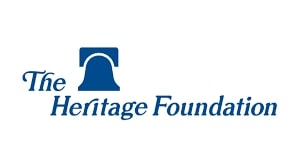 The Heritage Foundation Article Rating
The Heritage Foundation Article RatingKeeping Pakistan's Nuclear Weapons Out of the Hands of Terrorists | The Heritage Foundation
- Bias Rating
64% Medium Conservative
- Reliability
35% ReliableAverage
- Policy Leaning
6% Center
- Politician Portrayal
N/A
Continue For Free
Create your free account to see the in-depth bias analytics and more.
Continue
Continue
By creating an account, you agree to our Terms and Privacy Policy, and subscribe to email updates. Already a member: Log inBias Score Analysis
The A.I. bias rating includes policy and politician portrayal leanings based on the author’s tone found in the article using machine learning. Bias scores are on a scale of -100% to 100% with higher negative scores being more liberal and higher positive scores being more conservative, and 0% being neutral.
Sentiments
N/A
- Liberal
- Conservative
| Sentence | Sentiment | Bias |
|---|---|---|
Unlock this feature by upgrading to the Pro plan. | ||
Reliability Score Analysis
Policy Leaning Analysis
Politician Portrayal Analysis
Bias Meter
Extremely
Liberal
Very
Liberal
Moderately
Liberal
Somewhat Liberal
Center
Somewhat Conservative
Moderately
Conservative
Very
Conservative
Extremely
Conservative
-100%
Liberal
100%
Conservative

Contributing sentiments towards policy:
60% : Despite Pakistan's arguments that its nuclear weapons are safely guarded, the U.S. must construct and implement policies that proactively thwart the unwelcome possibility of Pakistan's nuclear weapons falling into the wrong hands.59% : Iran, in turn, began to export to Pakistan
56% : Pakistan's relations with Iran have been far from smooth over the last three decades.
54% : President Musharraf already contends with public opposition to his support for U.S. counterterrorism goals in the region, and conditioning aid through legislation would awaken memories of 1990 and weaken Pakistani public support for pursuing relations with the U.S. Instead of conditioning aid on specific actions by Islamabad, Washington should target its assistance programs more effectively to accomplish specific goals.
50% : Iran responded by amassing its military along the border with Afghanistan.
45% : Pakistan's support of the Sunni Taliban in the mid-1990s significantly raised tensions between Tehran and Islamabad.
43% : The six-month-long India-Pakistan military crisis sparked by a terrorist attack on India's parliament in December 2001 was defused after U.S. Deputy Secretary of State Richard Armitage secured a commitment from President Musharraf to end the infiltration of Kashmiri militants into Indian-held Kashmir.
*Our bias meter rating uses data science including sentiment analysis, machine learning and our proprietary algorithm for determining biases in news articles. Bias scores are on a scale of -100% to 100% with higher negative scores being more liberal and higher positive scores being more conservative, and 0% being neutral. The rating is an independent analysis and is not affiliated nor sponsored by the news source or any other organization.





















